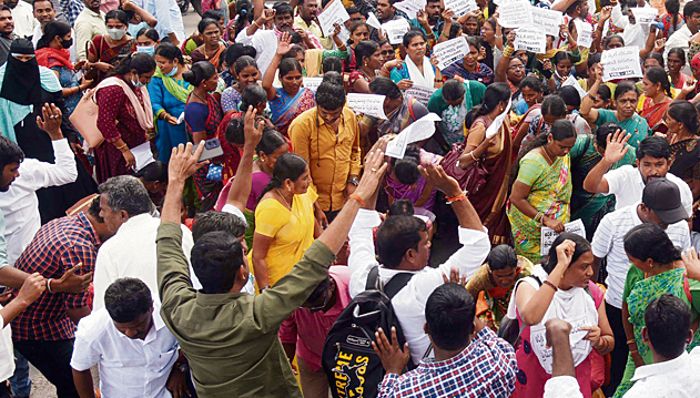
New Delhi, January 4
President Droupadi Murmu has given her assent to a Bill passed by the Gujarat Assembly, empowering the police to register cases against persons who stage protests in violation of Section 144 of the Code of Criminal Procedure (CrPC), officials said today.
The Code of Criminal Procedure (Gujarat Amendment) Bill, 2021, passed by the state Assembly in March last year, is stipulated to make any violation of prohibitory orders issued under Section 144, CrPC, a cognisable offence under Section 188 (disobedience to an order duly promulgated by a public servant) of the Indian Penal Code.
Arrest without warrant
- The Code of Criminal Procedure (Gujarat Amendment) Bill, 2021, empowers a public authority to register a case and arrest a person for violation under Section 144 of the CrPC
- Before this amendment, the state (police) could only detain violators for a limited period of time
- For a cognisable offence, a public authority can arrest an accused without a warrant
It amends Section 195 of the CrPC, which states that no court shall take cognisance of any criminal conspiracy for contempt of the lawful authority of public servants except on the complaint in writing of the public servant concerned.
According to the statement and objects of the Bill, the Gujarat Government, police commissioners and district magistrates are empowered to issue prohibitory orders under Section 144 of the CrPC, directing any person to abstain from a certain act or to take a certain order to prevent disturbance of public tranquillity or a riot or an affray to maintain public order on various occasions.
It said the police officers while deployed on such duties come across incidents of violation and need to take appropriate legal action against the violators under Section 188 of the IPC.
However, Section 195 of the CrPC, 1973, makes it mandatory for the public servant issuing such orders to be the complainant against the violators, thereby creating an impediment to taking cognisance of violations.... Section 195 (1) (a) (ii) CrPC prohibits the jurisdictional courts from taking cognisance of the offences except on the complaint in writing of the public servant concerned, the statement of objects said.
Offence under Section 188 of IPC
Any violation of prohibitory orders issued under Section 144, CrPC, will now be a cognisable offence under Section 188 (disobedience to an order duly promulgated by a public servant) of the IPC
Can invite 6-month jail
The maximum punishment under Section 188 is six-month jail
Join Whatsapp Channel of The Tribune for latest updates.




























